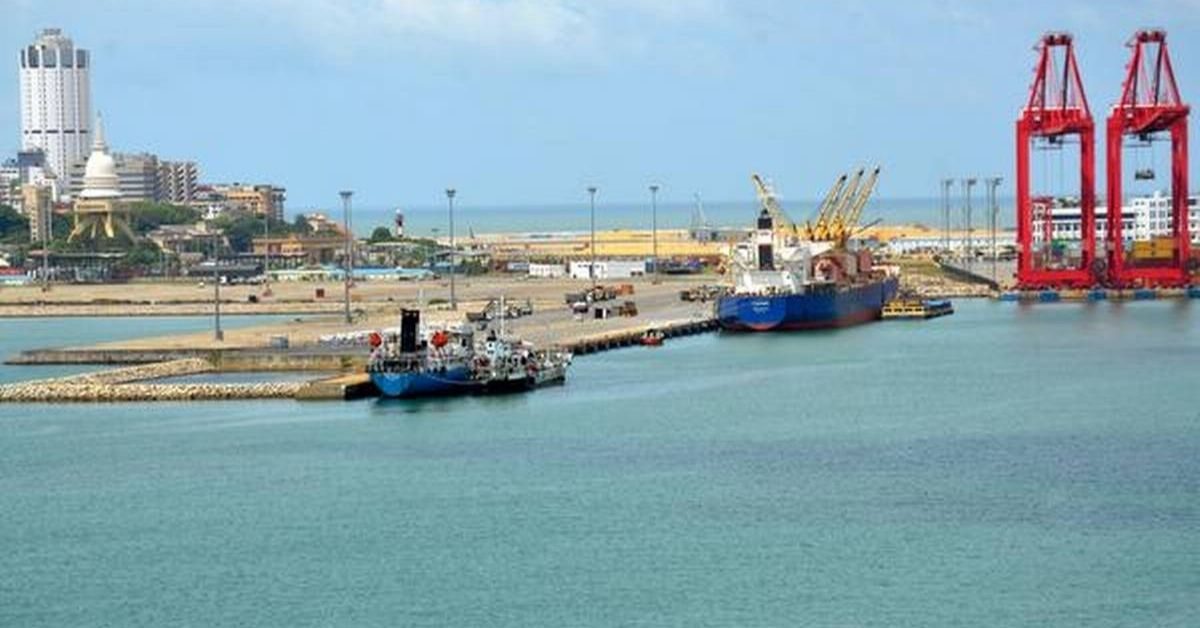Representing the shipping lines and feeder owners/operators’ perspective, the Sri Lanka Association of Vessel Operators (SLAVO) raised their concerns on the lack of importance given to the development of the East Container Terminal (ECT) due to theories adopted by various regimes during the past several years.
It is noted from print media and television shows that ‘non-direct stakeholders’ comments are aired without direct consultation with the relevant shipping lines leading to a political debate rather than a profound understanding of the core issues and taking corrective measures to develop and enhance capacity of a deep-water terminal along with associated facilities at the Port of Colombo. Shipping Lines are the main contributors to Port of Colombo as investors bringing in ships and volumes.
Lines require an alongside draft of 18 m and the ability to handle 28 containers across on newly built ships sailing around the world. Further, new cranes need to be supported with yard space and smooth, effective land side services irrespective of elections, administrative changes, labour unrest, external agitations and local holidays if Port of Colombo is to compete with other regional hub ports such as Singapore, Malaysia, and UAE.
Currently, the main East-West trade lane is controlled by six major consortiums offering ‘daily sailings’ from Port of Singapore, Malaysia-Tang Jong Pellaps-West Port-North Port compared to the ‘weekly limited sailings’ from Port of Colombo. The Port of Colombo requires to fast track capacity enhancement to simultaneously increase the number of sailings and regional business.
SLAVO has no preference for a fully state operated terminal or one that which is operated through a joint consortia model as long as accountability to ship owners’ lines are adhered to.
Reiterating the perspective of the international shipping lines, “Our intention is to conduct professional business with ease in Sri Lanka and Port of Colombo.” Therefore, the port facilities should be enhanced and developed with cutting-edge technology to be on par with other regional hub ports.
Pivotal to the shipping fraternity, the organisation which was established in 1995 is actively consulted on matters concerning the industry and holds frequent dialogue with key governmental agencies. Their aim as vessel operators and vessel owners is to ensure the business is gradually moving forward. Despite strikes and major congestions, civil war and other matters, the Port of Colombo achieved more demand, revenue and high volume ranked 22nd among the World’s Best Ports in year 2019. Therefore, they should maximise on the opportunities that are in hand and accelerate the progress.
SLAVO played a key role during the lockdown to ensure smooth cargo movement until the country gradually started functioning under the ‘new normal’ while adhering to Government directives following stringent safety measures.
SLAVO appreciates the efforts taken by the SLPA Chairman, Management and all three Terminals, Customs and other directly associated organisations during the global pandemic. The current membership comprises of 10 member companies representing the interest of the principals of major container shipping Lines operating in Colombo. At present the membership consists of SLAVO Chairman Shamal Perera – representing MSC, Vice Chairman Siddarth Iyer – representing Maersk, Honorary Treasurer Capt. Mohit Chaturvedi – from Far Shipping, Executive Committee Member Arjuna Hettiarachchi – from X-Press Feeders, Executive Committee Member Stuart Zhu – from OOCL, Marius Gomez from Transworld Feeders, Saliya Senanayake from Feedertech, Rio Jen from Evergreen Line, Mevan Peiris from Global Feeders, Gemunu Rodrigo from Bengal Tiger Line and Asmara Hamin the Secretary of SLAVO.
Source : Daily FT








